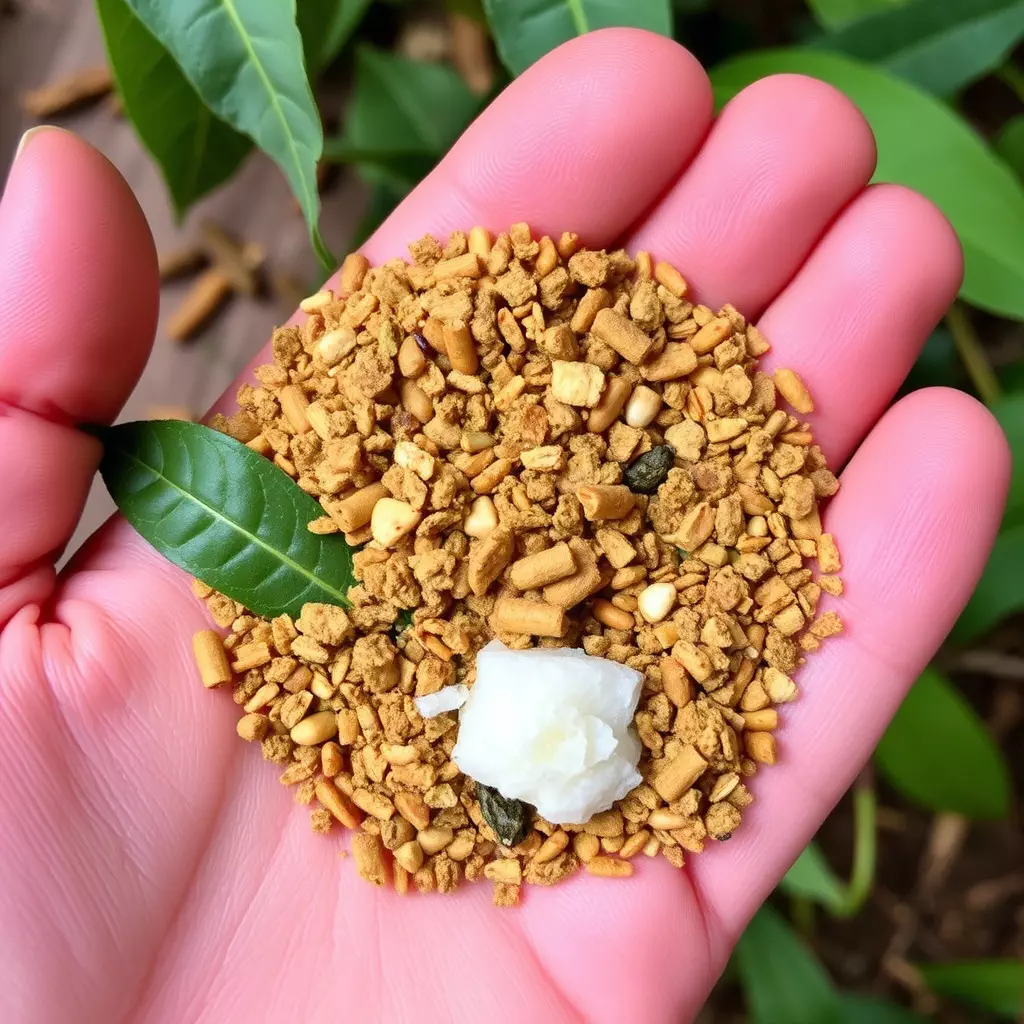Thai Kratom Powder, sourced from the Mitragyna speciosa tree, has gained recognition for its potential health benefits, including pain relief and mood enhancement, due to its alkaloids like mitragynine and 7-hydroxymitragynine. However, the legality of kratom varies significantly; as of early 2023, it is illegal in states such as Alabama and Arkansas, while its status remains complex in Michigan. In Michigan, kratom was classified as a Schedule I controlled substance in 2018 but continues to be a topic of legislative debate, with the legal landscape potentially shifting. Users across the United States, including those in Michigan, must stay informed about local laws since they can change frequently. It's crucial for anyone considering kratom to confirm its current legality within their jurisdiction and exercise caution due to its potency and potential side effects. Additionally, users should be aware of the risks of psychological dependence and consult healthcare professionals before use, especially if they have pre-existing health conditions or are taking other medications. As the scientific community continues to research kratom's effects, users are advised to monitor both state and federal legislation for updates on kratom's legal status.
Thai Kratom Powder has recently garnered attention across wellness communities and beyond, raising questions about its legality, benefits, and potential risks. This article delves into the intricacies of Thai Kratom, a botanical extract originating from the leaves of Mitragyna speciosa trees native to Southeast Asia. As we explore its varied effects and the legal status it holds in states like Michigan, it’s crucial to navigate the information with discernment, particularly in light of regulations that might classify it as a controlled substance in some areas—is kratom illegal in Michigan? We aim to clarify these points, ensuring readers are well-informed about this intriguing herbal substance. Join us as we unravel the complexities surrounding Thai Kratom Powder, its uses, and the considerations necessary for safe consumption.
- Understanding Thai Kratom Powder: A Comprehensive Overview
- The Legal Landscape of Thai Kratom in Michigan and Beyond
- Exploring the Benefits, Uses, and Precautions with Thai Kratom Powder
Understanding Thai Kratom Powder: A Comprehensive Overview

Thai Kratom Powder, sourced from the Mitragyna speciosa tree native to Southeast Asia, has garnered significant attention for its purported effects. This powder, often derived from leaves harvested in Thailand, contains alkaloids that are believed to influence well-being and health. Users report a variety of experiences, ranging from mild stimulation to sedative effects, depending on the dosage and strain. The alkaloid profile can vary significantly between strains, which may include Bali, Maeng Da, and Thai, each offering distinct experiences.
As with any natural substance, the legal status of Thai Kratom Powder varies by jurisdiction. In Michigan, for instance, the regulatory landscape is subject to change. As of the knowledge cutoff date, kratom is not universally banned within the state; however, some cities and counties have enacted restrictions or bans. It’s crucial for consumers to stay informed about their local laws regarding kratom, as legality can fluctuate based on evolving legislation. Users in Michigan and elsewhere should verify the current status of kratom’s legal standing in their specific location before purchasing or using Thai Kratom Powder. Understanding both the potential effects of this natural product and its legal implications is essential for anyone considering its use.
The Legal Landscape of Thai Kratom in Michigan and Beyond

The legal status of Thai Kratom, derived from the Mitragyna speciosa tree, has been a subject of contention and regulation across different states in the United States, including Michigan. As of my knowledge cutoff in early 2023, Thai Kratom is not explicitly illegal under federal law, which categorizes it as a Schedule I substance alongside drugs like heroin and LSD. However, the Drug Enforcement Administration (DEA) has taken steps in the past that have threatened the availability of Kratom. On the state level, Michigan’s legislature has approached the matter with caution, neither fully legalizing nor banning the substance. In 2018, Michigan amended the Public Health Code to specifically include kratom as a Schedule I controlled substance, aligning with federal guidelines. This classification restricts its use, possession, and distribution within state lines. Nevertheless, this regulatory framework has faced challenges and public debate, reflecting the broader national conversation about the therapeutic potential of Kratom versus its risks. Across the country, other states have enacted a range of policies towards Kratom, from full bans to regulated sales, creating a patchwork of laws that can complicate the understanding of its legal status both in Michigan and beyond. Consumers and policymakers continue to grapple with the implications of these laws, as the scientific community studies the effects of Kratom to better inform regulatory decisions. It’s important for anyone interested in the use of Thai Kratom to stay informed about evolving legislation at both the state and federal levels, as these can significantly impact access and legality.
Exploring the Benefits, Uses, and Precautions with Thai Kratom Powder

Thai Kratom Powder, derived from the leaves of the Mitragyna speciosa tree native to Southeast Asia, has garnered attention for its potential benefits and uses. This natural product contains alkaloids that may offer a range of effects, including pain relief, mood enhancement, and increased energy levels. Proponents often highlight its ability to assist with chronic pain management, due in part to the presence of compounds like mitragynine and 7-hydroxymitragynine, which are thought to interact with opioid receptors in the brain. Additionally, some users report that Thai Kratom can aid in managing symptoms of mental health conditions such as anxiety and depression.
When integrating Thai Kratom Powder into one’s wellness routine, it is crucial to be mindful of its legal status and potential side effects. While the federal government has not explicitly classified kratom as illegal on a national level, its legality varies by state. For instance, as of my knowledge cutoff in 2023, kratom is illegal in several states, including Alabama, Arkansas, Indiana, and others. Michigan’s status regarding kratom is subject to change; users should always verify the current legal standing within their jurisdiction, such as in Michigan, where there have been discussions and legislative actions regarding its regulation and legality. It is also essential to approach the use of Thai Kratom with caution due to its potency and potential for interactions with other substances or medications. Users should start with a low dosage to gauge effects and consult with a healthcare provider before using it, especially if they have underlying health conditions or are taking other medications. Precautions should be taken to avoid overconsumption and to mitigate the risk of adverse effects, which can include nausea, sedation, or, in some cases, psychological dependence.
Thai Kratom Powder, sourced from the leaves of the Mitragyna speciosa tree native to Thailand, has garnered significant attention for its varied effects and potential benefits. This article has delved into the intricacies of Thai Kratom, elucidating its properties, the legal status surrounding it, particularly in Michigan, and the myriad ways it can be utilized, all while emphasizing the importance of safe consumption practices. As the legal landscape of Kratom continues to evolve, understanding its implications, as discussed, is crucial for those considering its use. It’s important to stay informed on local regulations, such as the current status of kratom legality in Michigan, to ensure compliance with the law. In light of the nuanced effects and potential health considerations associated with Thai Kratom Powder, users are encouraged to approach it with caution and due diligence. This comprehensive overview aims to provide readers with a well-rounded perspective on this intriguing botanical substance, highlighting both its allure and the need for responsible usage within the legal framework set forth by state and federal regulations.






